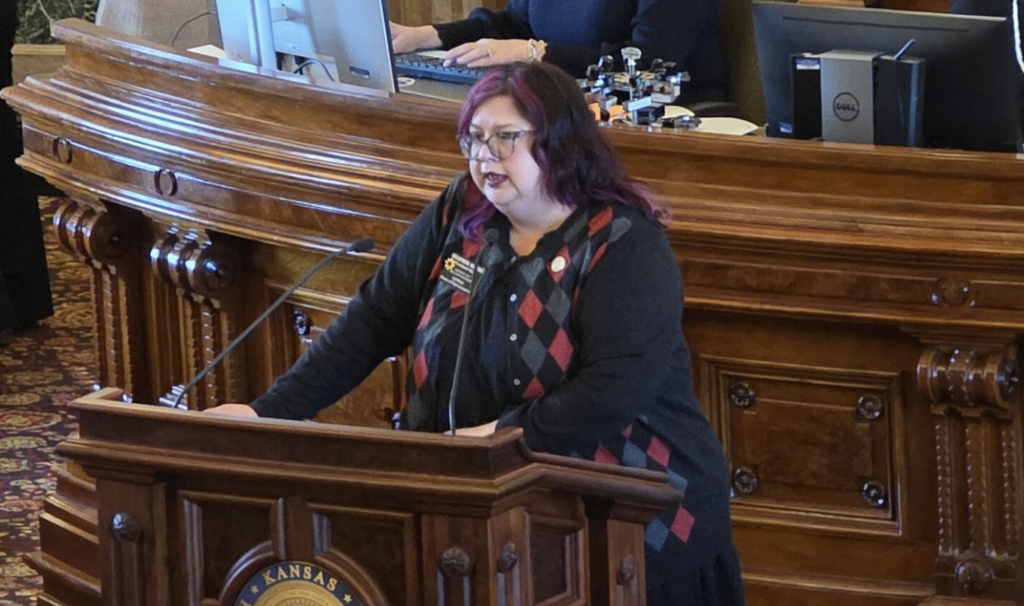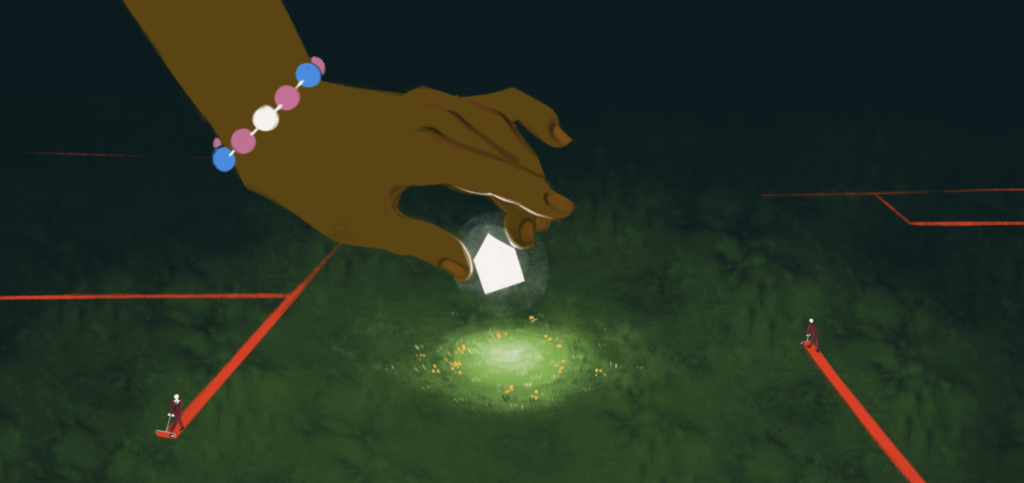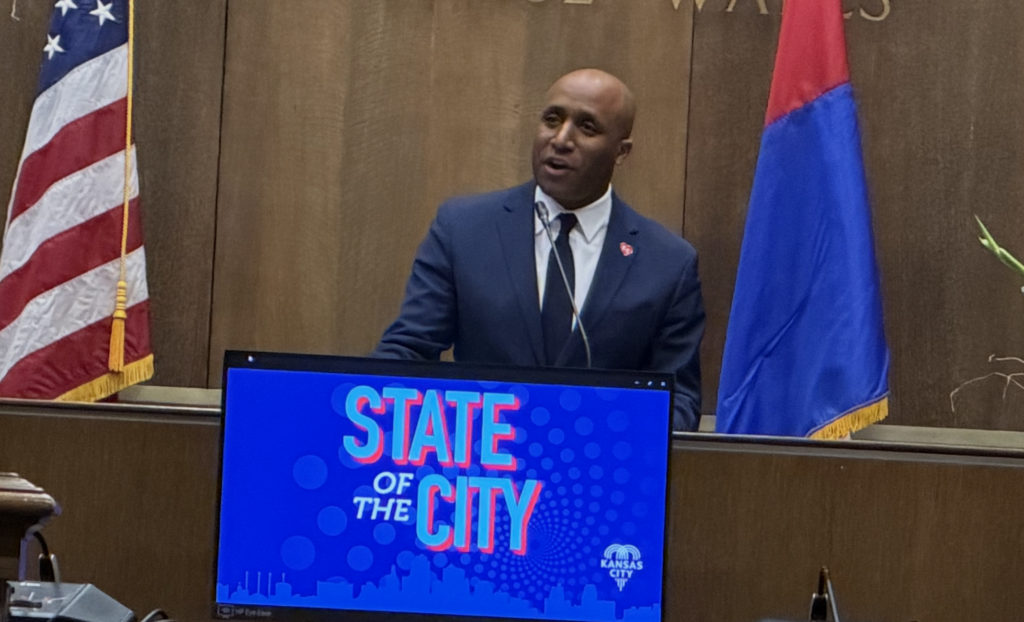Tarnished political socialization is crushing civic culture, personal identity, and progress
The Concise Oxford Dictionary of Politics defines the concept of political socialization as “the process by which people come to acquire political attitudes and values.” In other words, it’s a lifelong process that we all experience to some extent, reflecting the emergence of a particular political viewpoint or set of views from various information sources.
From birth to reading this column today, you are experiencing political socialization, typically through agents of that political socialization. The words of your pastor, the types of news and entertainment you consume, the music and books you enjoy, customs and traditions among family members and friends, where you live, how you live, and where and how you were educated are contributing factors in how you formulate your political views and beliefs. And by living in a democratic society, theoretically, political socialization contributes to an individualized and systematic environment of pluralism.
However, as the rise of Donald Trump has solidified the present-day Republican Party in power, political socialization in much of the United States, especially in Missouri, has shifted to the right. This is not a surprise for Missouri because this state has a rich political history that clearly shows support for Republicans and right-wing positions.
It is important to note that this isn’t the issue. Instead, I have identified that much of the right-wing shift in socialization has gone so far to the political right that there is little room for centrist and left-wing perspectives that dissent with the institutionalized ideology of the Trump administration.
We see this with Christian nationalism gaining prominence in socialization processes. The rise of social conservatism as we know it today can be traced to Christian fundamentalist figures, including divisive personalities like Jerry Falwell, James C. Dobson, and Pat Robertson. According to the nonprofit Association of Religion Data Archives, modern right-wing Christian movements emerged in the 1970s, culminating in the establishment of the infrastructure now used to advance agendas characterized as Christian nationalist, authoritarian in nature, and antithetical to secular pluralism.
Andrew Seidel, a First Amendment attorney and author of the book The Founding Myth: Why Christian Nationalism Is Un-American, told The Pitch that concerns about right-wing shifts in political socialization nationwide are further exacerbated by the acceptance of Christian nationalism.
Seidel, who also serves as the vice president of strategic communications for the non-sectarian religious freedom group Americans United for Separation of Church and State, explains, “I think there is a committed and well-funded group of Christian nationalists who want to co-opt the machinery of the state to impose their personal religious beliefs and some of the historical misinformation of their identity onto other people’s kids.”
Here, Seidel refers to the case of individuals like far-right GOP leaders, such as Ryan Walters of Oklahoma. Walters is the Oklahoma State Superintendent of Public Instruction, an elected position chosen by voters to run the state’s public school system for primary and secondary education. A devout Christian nationalist, Walters has tried to marry his interpretation of the Christian faith with the functions of the public school system to provide a “moral” upbringing for students under his system’s tutelage. His most controversial policy was the requirement for schools to teach the Christian translation of the Holy Bible and prominently display the Ten Commandments, despite existing case law indicating that this approach was a far-reaching step for a state official to take.
While the Oklahoma Supreme Court blocked this move by Walters, Seidel’s observation of the co-opting of “the machinery of the state” speaks to the impact schooling has on political socialization. If Walters did get his way, youth in attendance at the state’s K-12 public schools would be educated and socialized in a setting that makes the role of the state and the functions of the church two sides of the same coin.
[Editor’s Note: Just before publishing this piece, Ryan Walters resigned his position amid numerous ethics complaints. He has taken on a new role in a private sector organization with the goal of fighting teachers unions.]
There is no justification for not having religious studies courses in public schools. As long as the material is accurate, balanced, and provides a pluralistic perspective, the teaching of Christian faith in schools for scholarly purposes rarely conflicts with constitutional cover. But, as stated, if Walters did get his way, the separation of church and state would be eliminated, and a case can be made that religious diversity would be ostracized, leading to apparent religious censorship.
Similarly, this stems from what Seidel describes as a myth and a clearly disinformed interpretation of American history being one of Christian-aligned ideologies.
This is evidenced by the secular nature of our country’s founding documents, which preclude the state from establishing a national religion or showing favoritism to certain beliefs over others through official acts. “And the reason that myth and that disinformation is so essential to [these Christian nationalists], first of all, it’s become core to their identity,” Seidel says. He concluded our conversation by stating that Walters’ actions to repackage a different socio-political history go hand in hand with the authoritarian leanings of such a movement. And to counter this fight over facts, the Christian nationalist resorts to additional actions to prevent further discoveries by those in the echo chamber that make the godly facade appear far less reverent.
Again, in Oklahoma, Walters is forcing teachers from traditionally more liberal states, like New York and California, to take so-called “anti-woke” and “America First” ideological assessments his office has designed in collaboration with the conservative educational media nonprofit PragerU. The assessments serve as employment requirements for potential teacher applicants.
Co-founded and named after talk show radio host Dennis Prager, PragerU has gained prominence in recent years, despite being founded in 2009 by fellow conservative activist and screenwriter Allen Estrin. Estrin also serves as executive producer of Prager’s radio show, The Dennis Prager Show, which is nationally syndicated to radio markets. PragerU is notorious for mainstreaming revisionist interpretations of American history and civics in conservative markets. By incorporating ideological assessment as a state tool, Walters and the State of Oklahoma are adopting official stances that certain beliefs, spiritual and religious alignments, and other sentiments characteristic of Christian nationalistic ideology are, in effect, the law of the land.
For this column, I took the so-called “Teacher Qualification Test” to determine its scope and accuracy. It is 34 questions long, with several questions that deal with basic civics and U.S. history. However, the test features glaring errors and a pure right-wing slant. The test is outwardly transphobic, pushing the anti-trans and anti-LBGTQ+ rhetoric that has grown to be commonplace among the populist far-right and Make America Great Again movements.
Furthermore, the questions that deal with the American Civil War are additionally revisionist. For example, question 26 of the PragerU “Teacher Qualification Test” asks: “What was Abraham Lincoln’s primary reason for waging the Civil War?” Designed as a multiple-choice question, like all of the other questions in the test, it has four options for answers: (a) “to preserve states’ rights,” (b) “to abolish slavery,” (c) “to preserve the Union,” and (d) “to end the Union.” It is a long-held historical consensus that the American Civil War was fought over the issue of slavery and the system under which slavery laws were protected, which was upheld by states’ rights for the longest time. After President Lincoln’s election to the presidency in 1860 and assumed office in 1861, the Southern states seceded from December 1860 to May 1861. They formed the Confederate States of America. However, the correct answer to this question in the test is “to preserve the Union.” Though this is partially correct, the primary reason for the fighting of the American Civil War was to abolish slavery and to put down an unlawful rebellion initiated by the South over the issue of slavery.
This is merely one example of that revisionism in practice.
While this PragerU test is not the law of the land in the state of Missouri, it raises concerns about a potential future where political socialization, including through the lens of those who want to change education in favor of right-wing beliefs, could have a significant impact. Consider observations made by education historian Jonathan Zimmerman as they pertain to the involvement of PragerU and its potential implications for states like Missouri and the rest of the country. Zimmerman is additionally a professor of education, teaching at the University of Pennsylvania’s Graduate School of Education. In our interview for The Pitch, Zimmerman asserts that the issue of organizations like PragerU gaining so much power and the overall shift in political socialization are due to the so-called culture wars being fought in schools from the outset.
Schools are regarded as one of the key agents of socialization for young people, in general, as well as a key agent for political socialization, following the socialization provided by the family environment and by religion.
“We’ve always had culture wars around the schools,” Zimmerman says. “I think the Republican politicians correctly understand that Americans don’t share a single story about the nation anymore… Let’s remember that PragerU is an internet enterprise. That’s what it is. It is a digital enterprise, 100 percent. [It] couldn’t have existed in the pre-internet era,” as it does now.
“There have always been people saying what Prager’s saying, that, you know, the schools are making people socialists, or even communists,” he says, adding that the John Birch Society and Ku Klux Klan, among other organizations at the time, have baselessly attributed the fluoridation of water in the 1950s as a communist plot to take over America and harm white populations.
He explains, “Now, there are a bunch of states that have banned fluoridation. There are several reasons for this fact, but I think the primary one is that it’s much easier to disseminate information about the conspiracy theory. The John Birch Society had to leaflet door-to-door. Prager doesn’t have to do that. They simply press a bunch of buttons, and blasts of energy appear everywhere.” Using the John Birch Society as an example, again, the organization employs political socialization methodologies that involve education, activism, and community building. Regardless of the messaging or the source of information, people who share similar beliefs are more likely to gravitate toward each other and form a community in that format.
PragerU is simply one actor in the rising alternative media ecosystem that social conservatives and other right-wing and far-right movements are contributing to. For example, the technology news outlet 404 Media reported over the summer that PragerU, in partnership with the U.S. Department of Education and the Trump administration, produced videos featuring past presidents, like John Adams, speaking on how “facts do not care about your feelings”, with the late Adams appearing as AI-generated slop. A clear indication of this is that revisionist history, even on a national scale, is a common factor among the Christian nationalist movement: setting inexplicably low standards to achieve lofty goals.
Zimmerman notes that the right is attempting to institutionalize the sentiment that education, especially in K-12, should cease “leftist indoctrination.” A goal built on lies.
President Trump issued an executive order early in his return to office, re-establishing his administration’s efforts to promote civics, but in the view of conservative and right-wing revisionism. This executive order, titled “Ending Radical Indoctrination in K-12 Schooling”, directs the federal government under his administration to institute a curriculum that isn’t “anti-American, subversive, harmful, and false ideologies” by staking federal educational funding on it as conditions of compliance. The American Historical Association and the Organization of American Historians say the executive order “mischaracterizes history education across the United States, alleging educational malpractice.”
The association conducted groundbreaking research into the depth and balance of American historical curriculum in secondary schools across the United States. “This careful research revealed a landscape of public education dramatically different from the ‘indoctrination’ alleged in this executive order,” reads a response from the association and its partner groups. As asserted throughout this column, what is on display in this institutionalized far-right informational ecosystem, along with interconnected collective efforts of far-right movements to control information in the context of political socialization, is a clear and willful mischaracterization of history and contemporary events.
Education historian Adam Laats, a professor at the School of Education at Binghamton University, SUNY, in New York, tells The Pitch that key information sources are being politicized like never before. He says that the current moment in history has seen a “Trumpification” of information and the “intense distrust of the mainstream or legacy media or any kind of information source.” Dr. Laats further explains, “The U.S. has a strong history of teachers being attacked for teaching things that are acknowledged to be correct.”
He explains that he has studied conservative-leaning private schools and parochial schools, where he likens their messaging and delivery of information to that of a totalitarian government. Laats explains, “They explicitly [and] intentionally try to teach in a way, and obviously they wouldn’t like to hear this, but they have an idea that is similar to what different totalitarian regimes have, which is that ‘we’ need to deliver one truth to the children, and we need to be aggressive in making sure there’s no adulteration of the content they’re getting in school.”
Trump is promoting that ecosystem concept and is being seen in the rising visibility of Missouri elected officials who have openly and proudly preached in favor of an explicit Christian nationalistic agenda. I produced a series for The Pitch over the summer months of this year about the far-right Christian supremacist nature of Missouri politics in recent years.
There is ample evidence that elected leaders in Missouri, as well as those who represent the state on the national stage, are direct contributors to the imbalance in the civic culture, which appears to have grown toxic.
Considering all of this, political socialization isn’t just about what information people receive; it is also about where it comes from and how it shapes individuals’ long-term political identity. There is a clear trend in Missouri that information sourcing in communities dominated by conservative politics has overlooked traditional media institutions, like a local news channel or a newspaper, in favor of the 24-hour talking heads on conservative news networks. In the infotainment era, on-air personalities on networks like Fox News, One America News, and Newsmax serve as the truth-tellers for entire swaths of people.
This is also the case for more progressive audiences, who view MSNBC, MeidasTouch, and CNN hosts as their truth-tellers. Despite the echo chambers in which both of these political audiences consume media, the overall data demonstrate that right-wing and far-right information sources are the most likely to disseminate misinformation and disinformation.
A 2025 peer-reviewed study published in The International Journal of Press/Politics concluded that information from “radical-right populist” sources is more likely to be false than from centrist, liberal democratic, and left-wing populist sources.
“Radical right populists have been effective in creating and utilizing alternative media ecosystems that amplify their viewpoints, ranging from online news websites and blogs to more traditional forms of media like television and radio, which have been reconfigured to cater to [these] populist radical right narratives,” the study concludes. “The strategic construction of an alternative media ecosystem serves multiple purposes: It amplifies their ideological messages, creates a sense of community among followers, and provides a counter-narrative to mainstream media reporting.” Further, the researchers found that left-wing populists “have not established a parallel media ecosystem to the same extent.”
A 2024 analysis published in the peer-reviewed Misinformation Review, a publication of the Harvard Kennedy School’s Shorenstein Center on Media, Politics, and Public Policy, also highlights empirical data showing that conservative-leaning individuals are significantly less likely to recognize accurate and truthful information about climate change compared to liberal-leaning individuals. Researchers in this study developed their findings in response to concerns about the direct and indirect impacts of climate change misinformation and disinformation. Conservative-leaning individuals were found to be able to recognize factual information. Still, many fell into impairment when the factual information was out of step with the ideological messaging, which may have been incongruent with the material presented to them. The researchers urge conservatives to be exposed to additional informational environments that are less likely to circulate misinformation and disinformation related to climate change action.
As we’ve seen with the rise of these alternative information ecosystems, the right-wing shift in political socialization in Missouri and throughout the United States could prove costly to civic discourse. If left unchallenged, these shifts will solidify into a civic order where disinformation becomes doctrine and dissent is treated as a form of betrayal.
Missouri’s transformation is not an outlier for the country, but a warning, showing us how democracy itself can be hollowed out under the weight of artificialized truth.





